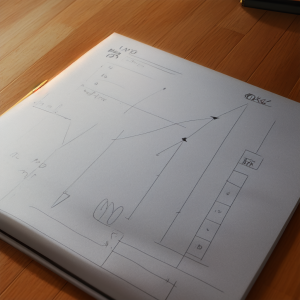Heggstad petition – when can you use it?
Heggstad petition should be used in the situation when there is a trust which was not funded properly or property was not listed in the trust at the time at the time of the person’s death. In this situation s the court can determine whether the settlor of the trust had intended to transfer the property at issue to the beneficiary.
Generally is anything that exceeded $166,250 left outside of the trust shall go through probate. By using Heggstad petition you can definitely simplify the process, saving a lot of time and money on the full probate process.
Heggstad petition -what the court is looking for?

The estate planning attorney assisting you in such a case would first look at the schedule of assets to determine whether the property at issue was included it schedule of assets. If it was included, your attorney would father look at whether the deed transfer property into the trust was prepared and if it was whether any problem with the execution of this deed or recording.
If the deceased did not have the asset listed in this schedule of assets your estate planning attorney will look into whether it was because it was a newly acquired account that he recently
started using just prior to his passing and there is some provision in the trust specifying how are later acquired properties/a accounts shall be handled.
Another way your attorney can proceed with heggstad petition is by looking at certain agreements made. For example, if the decedent is a co-owner with some of the beneficiaries of the trust on certain accounts.
General Reference to Real Property in Trust Sufficient for Heggstad Petition.
What happened with a house in the trust after death if the transfer to the trust was not recorded?
In the recent case Ukkestad v RBS Asset Fin., Inc. (2015) trust provided that the Settlor “hereby assigns, grants and conveys to the Trustees of this instrument all of the Grantor’s right, title and interest in and to all of his real and personal property… wherever situated.”
Settlor had not executed deeds to two properties before his death. After his death, a potential creditor objected to the Trustee’s Heggstad petition claiming that the trust instrument did not satisfy the statute of frauds with respect to the real property. Based on that reasoning, the probate court denied the petition.
The trustee and the creditor settled, so the creditor did not appear in the appeal.
The court of appeal overturned the probate court’s order. It began by explaining that is it “well established that if two specific requirements are met, real property may be made part of a trust’s assets without a separate deed transferring property to the trust.” Those two requirements are:
- The owner of the real property is the Settlor of the trust naming himself or herself as trustee; and
- With respect to real property, compliance with the statute of frauds.
Addressing the statute of frauds issue, the court found that the statute of frauds is satisfied if the identity of the real property can be determined with reasonable certainty. Reasonable certainty is satisfied with either a certain description or by providing a “means or key” which, using extrinsic evidence, can be used to identify the property.
Here, the real property to be conveyed to the trust was identified as all real property owned by the Settlor wherever situated. Using the county records, which are public, as the means or key, the specific parcels of property can be identified. Accordingly, the statute of frauds is satisfied.
Heggstad Petition is regulated by Probate Code 850
Advantages and disadvantages of Heggstad petition
The only disadvantage Hegstad petition is it it get denied your filing fees and attorney fees for the process is lost. The outcome of Heggstad petition as well as many other legal matters is not guaranteed. Most of Heggstad petitions are getting approved by the judge when the proper documents are presented to the court.
The advantages of Heggstad petition is saving between $15,000 and $50,000 ( depending on the value of the estate) in probate fees and saving year/years in the distribution of the assets to the beneficiaries.
714-390-3766

